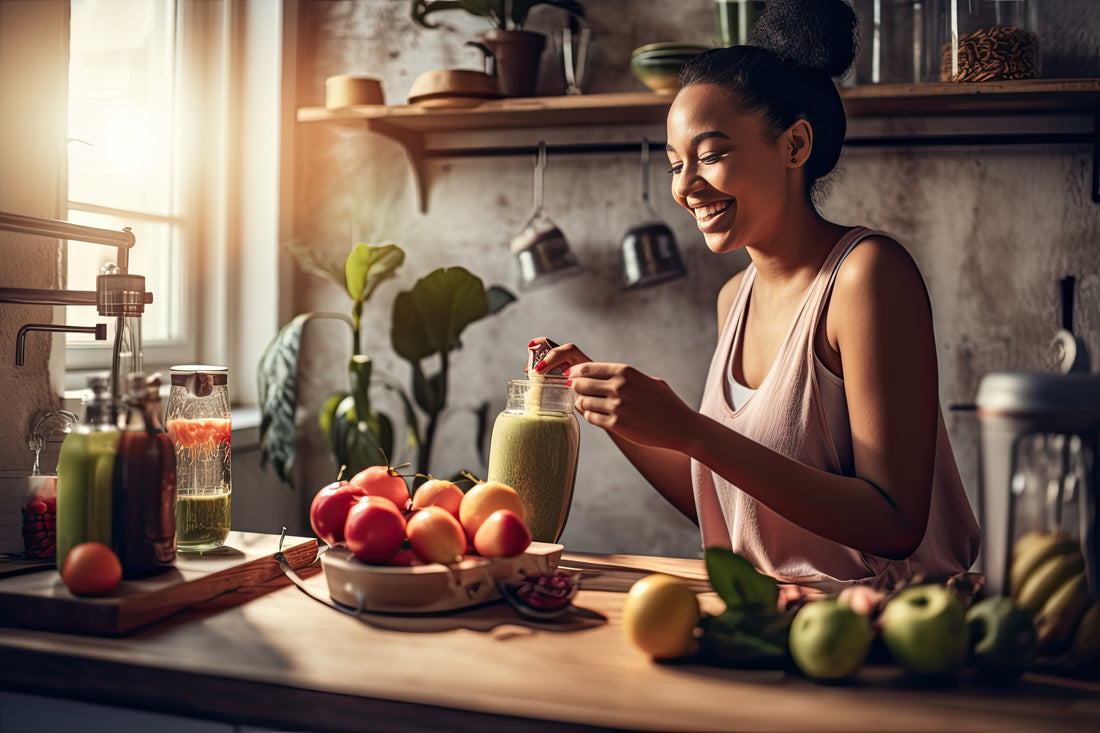For anyone interested in maintaining or improving their general health, your daily routine likely involves antioxidants1. These special compounds, including vitamins, minerals, and natural substances, have been found to defend against harmful damage and inflammation, which can endanger our bodies, including our reproductive organs. Antioxidants are considered essential for fertility, especially for people who may have trouble getting pregnant naturally.
The Science Behind Antioxidants’ Protective Abilities
Our bodies contain free radicals, or reactive oxygen species (ROS)2, which are molecules vital for certain processes, such as insulin utilization or ovulation. However, because they’re forced to steal electrons from other molecules3, free radicals can cause oxidative and cellular damage, increase inflammation, and potentially contribute to various chronic conditions, such as infertility. Antioxidants negate this process by sacrificing their electrons, thus preventing damage and reducing inflammation. These nutrients also support the health of the mitochondria, cellular powerhouses, making antioxidants crucial for energy production. This helps to improve the production of eggs and sperm, while also promoting other benefits to enhance the chances of conception or support pregnancy.
Which Antioxidants Should Couples Take for Fertility?
Vitamin C
Shown to regenerate other antioxidants4, vitamin C, or L-ascorbic acid, benefits sperm health in a variety of ways. It’s been found to defend against DNA fragmentation5 in sperm, which can cause chromosomal abnormalities that lead to miscarriage. Vitamin C also prevents sperm from clumping together. Often taken with Vitamin E, another antioxidant, these nutrients may support sperm health6, including improved quality, count, and motility. This pairing can also promote fertility benefits for women, including ovarian function, egg and embryo health, and fertilization rates.
Vitamin D
Vitamin D3 is a crucial antioxidant for cellular energy production. Higher levels have been shown to improve ovarian follicle function7. Vitamin D may improve egg quality by supporting the development of the anti-Müllerian hormone (AMH)8, a common biomarker of ovarian reserve. In women undergoing in vitro fertilization (IVF)9, increased amounts of Vitamin D may help with the formation of better-quality embryos and implantation. Additionally, Vitamin D supplementation has also been linked to improved semen health and quality10, including spermatogenesis (sperm development).
CoEnzyme Q10 (CoQ10)
CoQ10, or Ubiquinone, is particularly important for energy production11. Very high energy levels are needed to accomplish fertilization and cell division during early embryo development, and if insufficient, egg quality and conception may be impacted. CoQ10 lowers oxidative stress levels12 in follicles, the fluid-filled ovarian pockets that release eggs, helping to address diminished ovarian reserve13.
CoQ10 may also be beneficial for sperm health by providing sperm cells with the extra energy they need to reach and fertilize the egg, while also supporting general sperm health and quality14. Additionally, CoQ10 has been found to improve IVF outcomes15 by supporting embryo quality.
Lycopene
Lycopene is a powerful carotenoid shown to be particularly effective for fertility in healthy young men16. In terms of sperm health, it may improve sperm concentration, motility, morphology (shape), and viability17. Additionally, this nutrient may help with idiopathic oligoasthenosperinia (low sperm count)18, a primary cause of male infertility, by enhancing count and concentration.
Improve Your Fertility with Antioxidant Supplementation
By fighting oxidative damage and inflammation, antioxidants may improve fertility. NutraBloom® provides optimal levels of fertility-boosting antioxidants in our Ovarian Support Kit and Male Fertility Formula, both of which were developed to promote egg and sperm health and quality. You can support your fertility and reproductive health with our Couple’s Preconception Kit or Couple’s Preconception + PCOS Kit.
- https://www.hsph.harvard.edu/nutritionsource/antioxidants/
- https://pubmed.ncbi.nlm.nih.gov/28822266/
- https://www.health.harvard.edu/staying-healthy/understanding-antioxidants
- https://pubmed.ncbi.nlm.nih.gov/12134712/
- https://www.ncbi.nlm.nih.gov/pmc/articles/PMC7127905/
- https://pubmed.ncbi.nlm.nih.gov/17004914/
- https://www.ncbi.nlm.nih.gov/pmc/articles/PMC9502977/#
- https://www.ncbi.nlm.nih.gov/pmc/articles/PMC7486884/
- https://www.ncbi.nlm.nih.gov/pmc/articles/PMC8969598/
- https://www.ncbi.nlm.nih.gov/pmc/articles/PMC7076312/
- https://lpi.oregonstate.edu/mic/dietary-factors/coenzyme-Q10
- https://www.ncbi.nlm.nih.gov/pmc/articles/PMC6210096/#
- https://pubmed.ncbi.nlm.nih.gov/32767206/
- https://www.ncbi.nlm.nih.gov/pmc/articles/PMC8226917/
- https://www.ncbi.nlm.nih.gov/pmc/articles/PMC5427661/
- https://link.springer.com/article/10.1007/s00394-019-02091-5
- https://www.ncbi.nlm.nih.gov/pmc/articles/PMC4023371/
- https://doaj.org/article/0877e5b5693b4d22840aef71425385ba


